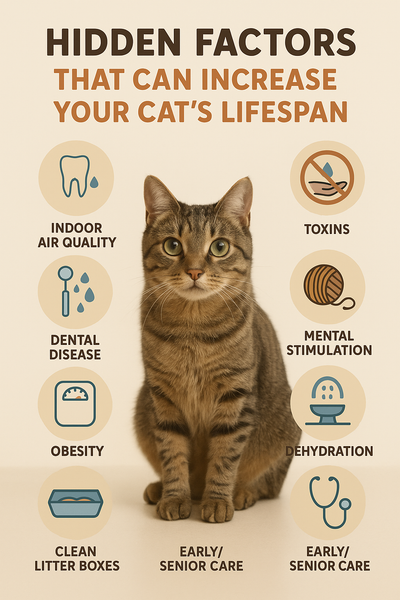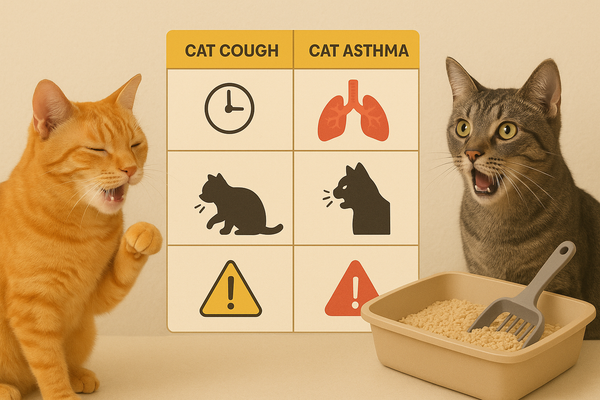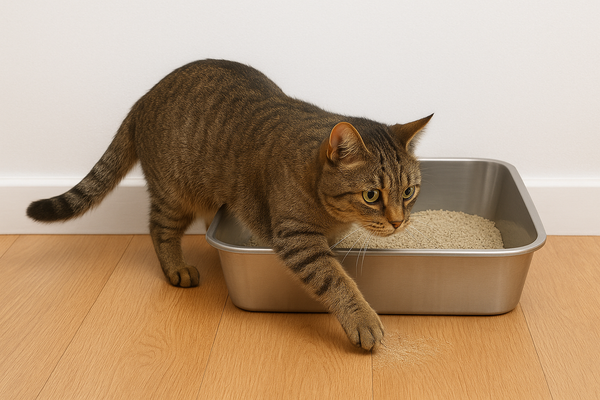
If you’re a cat parent, you’ve probably noticed a wide range of vocal personalities in the feline world. Some cats barely make a peep, while others seem to have a full-on conversation with you throughout the day. So, what causes some cats to meow more than others? From breed traits to behavior and even medical issues, there’s a lot that influences your cat’s chatter. Let’s dig into the reasons why your kitty might be more vocal than the rest.
1. Breed Makes a Big Difference
Certain cat breeds are genetically predisposed to be more talkative. These cats often use their voice to express themselves, get your attention, or respond to their environment.
-
Siamese: Probably the most famous talkers, Siamese cats have a loud, distinctive voice and love to communicate with their humans.
-
Oriental Shorthair: These cats are closely related to the Siamese and are equally expressive.
-
Burmese and Maine Coons are also known to be vocal, although with slightly softer, more melodic meows.
If your cat belongs to one of these breeds, chances are they’re naturally more inclined to meow—it’s just in their DNA!
2. Your Cat’s Unique Personality
Just like humans, cats have different personalities. Some are naturally more social and outgoing, while others are shy or independent. Cats that are confident and curious are often more vocal because they want to engage with their environment—and with you.
Kittens raised in interactive households, especially those handled frequently as babies, are often more comfortable using vocalizations to express themselves. In contrast, cats that were feral or had limited human contact early in life may be more reserved.
3. They Want Something
This is probably the most common reason cats meow—they’re trying to get something from you.
-
Hunger: A classic cause. If mealtime is near (or even just a little late), expect some vocal reminders.
-
Attention: Some cats love human interaction and will meow for petting, play, or simply your presence.
-
Boredom: A cat with not much to do might fill the silence by meowing. Enrichment activities can help with this.
-
Access: Want to go outside? Into a closed room? See the bottom of that cabinet? Expect a meow chorus.
Cats are smart and quickly learn that meowing is a very effective tool for getting your attention.
4. Age and Cognitive Changes
As cats age, changes in their brain function can lead to increased vocalization. This condition is often compared to dementia in humans and is known as feline cognitive dysfunction.
Common signs of age-related meowing:
-
Increased night-time vocalization
-
Disorientation or confusion
-
Meowing at walls or in empty rooms
If your senior cat is meowing more, a vet visit is a good idea. There are medications and management strategies that can help keep them comfortable.
5. Medical Issues Can Cause Excessive Meowing
Sudden or unusual increases in vocalization could be a sign of a health issue. Some common medical causes include:
-
Hyperthyroidism: Overactive thyroid glands can make cats more restless, hungry, and vocal.
-
High blood pressure or pain: Especially in older cats, can lead to distress vocalization.
-
Urinary tract infections or digestive discomfort may also cause a cat to cry out.
Always rule out medical causes if your cat starts meowing more than usual, especially if the change is sudden or paired with other symptoms.
6. Stress and Environmental Changes
Cats don’t like change, and meowing can be their way of coping. Common stressors include:
-
Moving to a new home
-
A new pet or baby in the household
-
Changes in your schedule or absence
-
Rearranging furniture or introducing new smells
A stressed cat may become more vocal as a way of seeking reassurance or expressing discomfort. Providing stability, hiding spots, and calming pheromones (like Feliway) can help ease transitions.
7. They’re Just Chatty
Finally, some cats meow more simply because they’re expressive and like the sound of their own voice. If your cat seems happy, healthy, and is otherwise acting normally, meowing may just be part of their personality. Some cats "talk" back when you speak to them, respond to sounds outside, or follow you around the house narrating their day.
How to Respond to a Meowy Cat
If your cat’s constant meowing is starting to wear on you, here are a few tips:
-
Don’t reward excessive meowing: If they’re doing it for attention, try not to respond every time, or they’ll learn it works.
-
Keep a routine: Cats love consistency, especially with feeding times and play sessions.
-
Offer enrichment: Boredom is a big trigger for vocal cats. Try puzzle feeders, cat trees, window perches, or interactive toys.
-
Visit the vet: Always rule out any medical issues first, especially for changes in behavior.
-
Be patient: Vocalization is part of feline communication. As long as they’re healthy, it’s just one of the ways they express themselves.
Final Thoughts
Some cats are naturally more vocal than others due to their breed, personality, or environment. While meowing can sometimes be a sign of distress or illness, in many cases it’s just your cat’s way of “talking” to you. Learning to understand your cat’s meows can help you strengthen your bond and meet their needs more effectively.
So the next time your cat lets out a loud "meow," listen closely—they might be trying to tell you something important… or maybe they just missed you.



